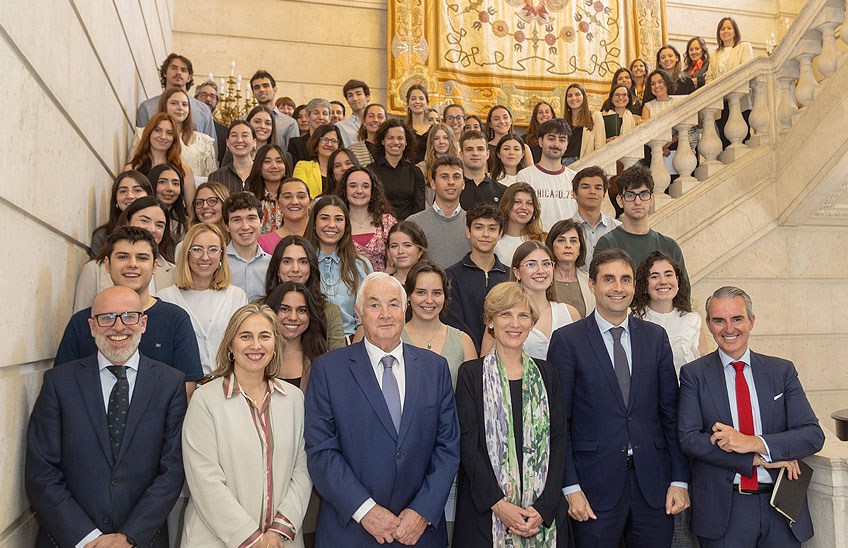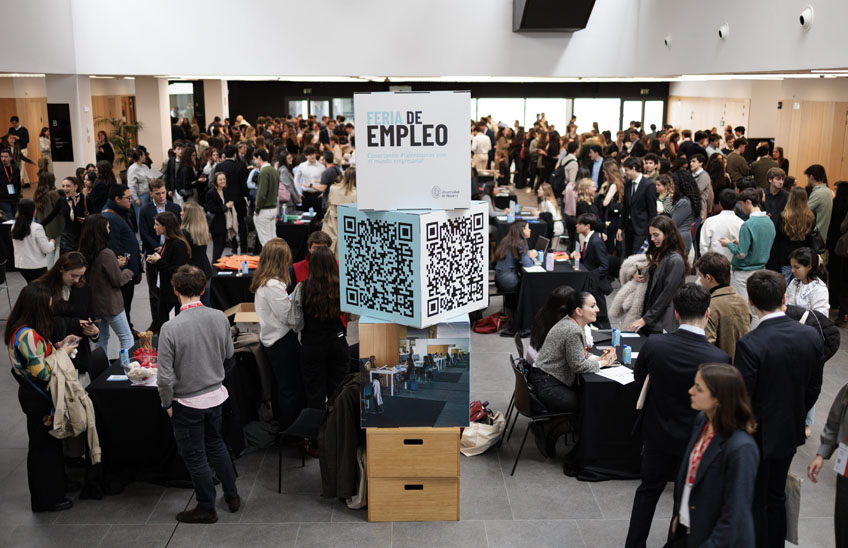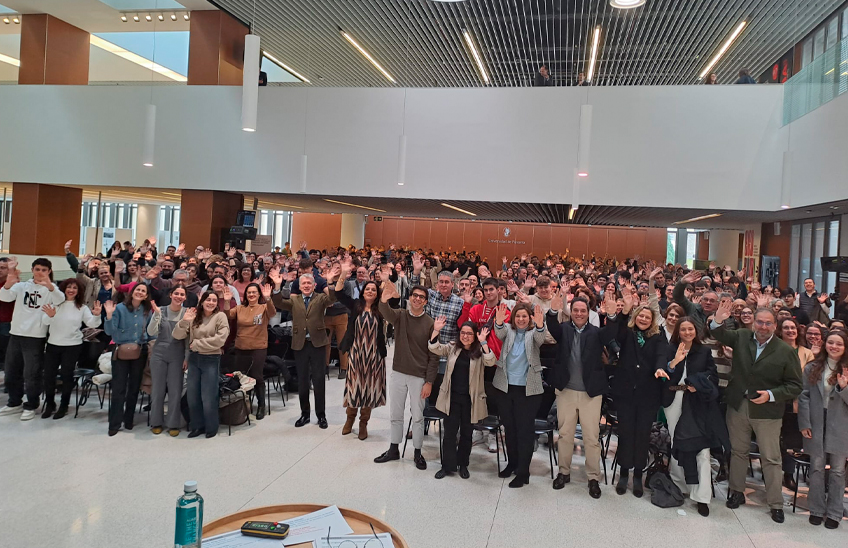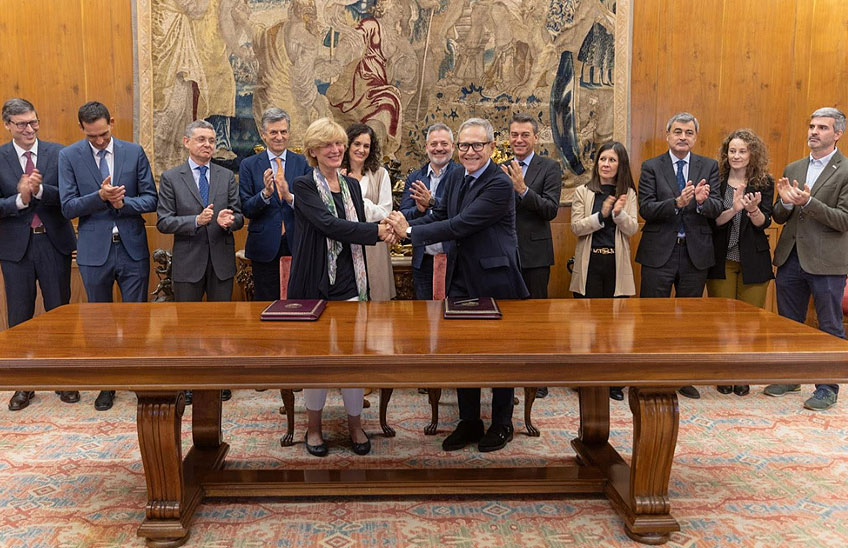The University promotes its research against neuroblastoma, one of the most common tumors in children under 5 years of age.
The academic center renews its agreement with association NEN to study less toxic treatments that avoid the side effects of chemotherapy.
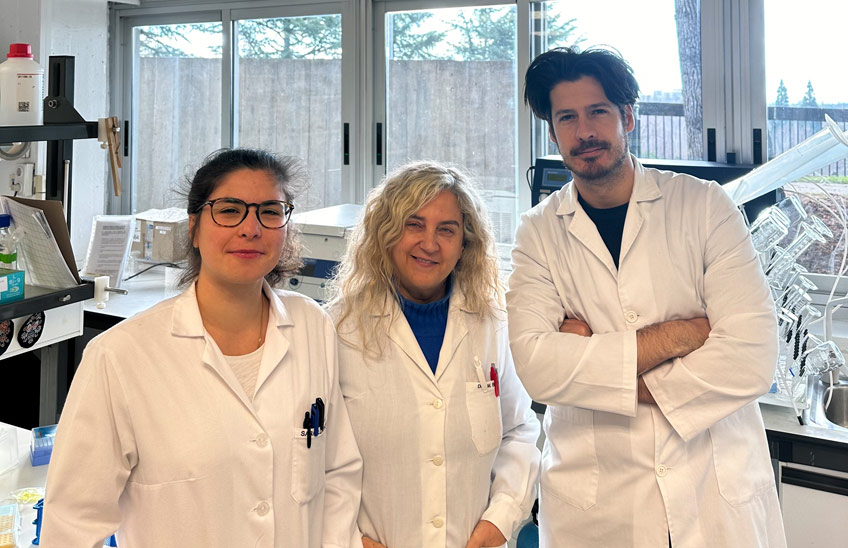
FotoManuel Castells<br>/De izquierda a derecha, Sara Lorenzoni, María Blanco y Carlos Rodríguez, investigadores de la Universidad de Navarra que buscan tratamientos menos tóxicos contra el neuroblastoma.
15 | 02 | 2024
"Despite being a rare disease, more than 300,000 children and adolescents between 0 and 19 years of age are diagnosed with cancer every year in the world, being the leading cause of death by disease in childhood". This is highlighted by María Blanco, professor at School of Pharmacy and Nutrition at the University of Navarra, on the occasion of International Childhood Cancer Day, celebrated today, February 15.
The University of Navarra has just renewed its agreement with association NEN (Niños Enfermos de Neuroblastoma), to promote its research in the fight against neuroblastoma, a cancer that forms in nerve tissue. The study, led by Dr. María Blanco, seeks less toxic treatments for this tumor, one of the most common in children under five years of age and which represents half of all cases of cancer in infants.
This agreement will finance part of the thesis of Sara Lorenzoni, a researcher who is part of the international WIT predoctoral grant program, led by the Government of Navarra. Directed by Dr. Blanco and Dr. Carlos Rodríguez, she seeks, with this technology, to maintain efficacy, prioritizing safety and minimizing toxicity. "We not only seek to cure, but also to 'cure better', reducing the toxicity of the treatments. We want children to be able to grow up and become healthy adults without suffering the side effects of chemotherapy," emphasizes María Blanco.
Improving quality of life in adulthood
Nanomedicine represents a promising advance in the treatment of childhood cancer by effectively addressing the toxicity of conventional cytostatic drugs (chemotherapy). "Nanodrugs selectively target therapeutic agents to cancer cells, minimizing the impact on healthy cells. This approach not only improves the effectiveness of treatment, but also has the potential to reduce the sequelae associated with treatment toxicity in adulthood," explains the researcher.
The professor thanks the association NEN for renewing this agreement: "Much of the impetus for research against childhood cancer comes from parents' associations that raise funds through various initiatives with the goal to finance innovative projects," she stresses.
International Childhood Cancer Day is an opportunity to sensitize society and raise awareness of the need to promote the research in this field. In Spain, around 1,500 cases of childhood cancer are registered each year and according to the World Health Organization, the survival rate exceeds 80 percent. "However, as the life expectancy of children diagnosed with cancer has increased, significant long-term side effects related to treatment have also been identified, which significantly impacts their quality of life. Against this backdrop, it is imperative to develop more personalized and less toxic treatments," concludes Dr. Blanco.

